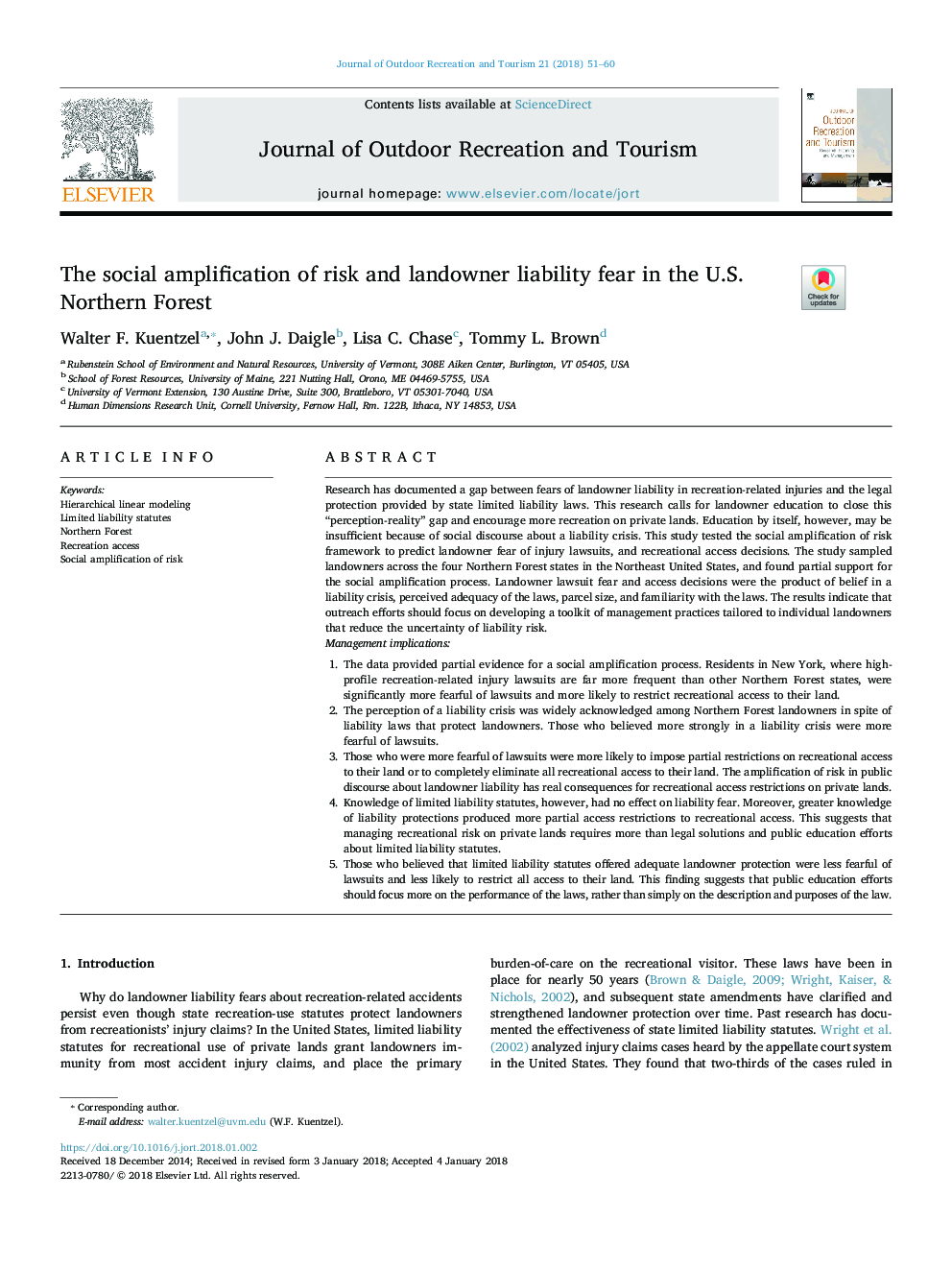| Article ID | Journal | Published Year | Pages | File Type |
|---|---|---|---|---|
| 6545194 | Journal of Outdoor Recreation and Tourism | 2018 | 10 Pages |
Abstract
Research has documented a gap between fears of landowner liability in recreation-related injuries and the legal protection provided by state limited liability laws. This research calls for landowner education to close this “perception-reality” gap and encourage more recreation on private lands. Education by itself, however, may be insufficient because of social discourse about a liability crisis. This study tested the social amplification of risk framework to predict landowner fear of injury lawsuits, and recreational access decisions. The study sampled landowners across the four Northern Forest states in the Northeast United States, and found partial support for the social amplification process. Landowner lawsuit fear and access decisions were the product of belief in a liability crisis, perceived adequacy of the laws, parcel size, and familiarity with the laws. The results indicate that outreach efforts should focus on developing a toolkit of management practices tailored to individual landowners that reduce the uncertainty of liability risk.Management implications1.The data provided partial evidence for a social amplification process. Residents in New York, where high-profile recreation-related injury lawsuits are far more frequent than other Northern Forest states, were significantly more fearful of lawsuits and more likely to restrict recreational access to their land.2.The perception of a liability crisis was widely acknowledged among Northern Forest landowners in spite of liability laws that protect landowners. Those who believed more strongly in a liability crisis were more fearful of lawsuits.3.Those who were more fearful of lawsuits were more likely to impose partial restrictions on recreational access to their land or to completely eliminate all recreational access to their land. The amplification of risk in public discourse about landowner liability has real consequences for recreational access restrictions on private lands.4.Knowledge of limited liability statutes, however, had no effect on liability fear. Moreover, greater knowledge of liability protections produced more partial access restrictions to recreational access. This suggests that managing recreational risk on private lands requires more than legal solutions and public education efforts about limited liability statutes.5.Those who believed that limited liability statutes offered adequate landowner protection were less fearful of lawsuits and less likely to restrict all access to their land. This finding suggests that public education efforts should focus more on the performance of the laws, rather than simply on the description and purposes of the law.
Related Topics
Life Sciences
Agricultural and Biological Sciences
Forestry
Authors
Walter F. Kuentzel, John J. Daigle, Lisa C. Chase, Tommy L. Brown,
